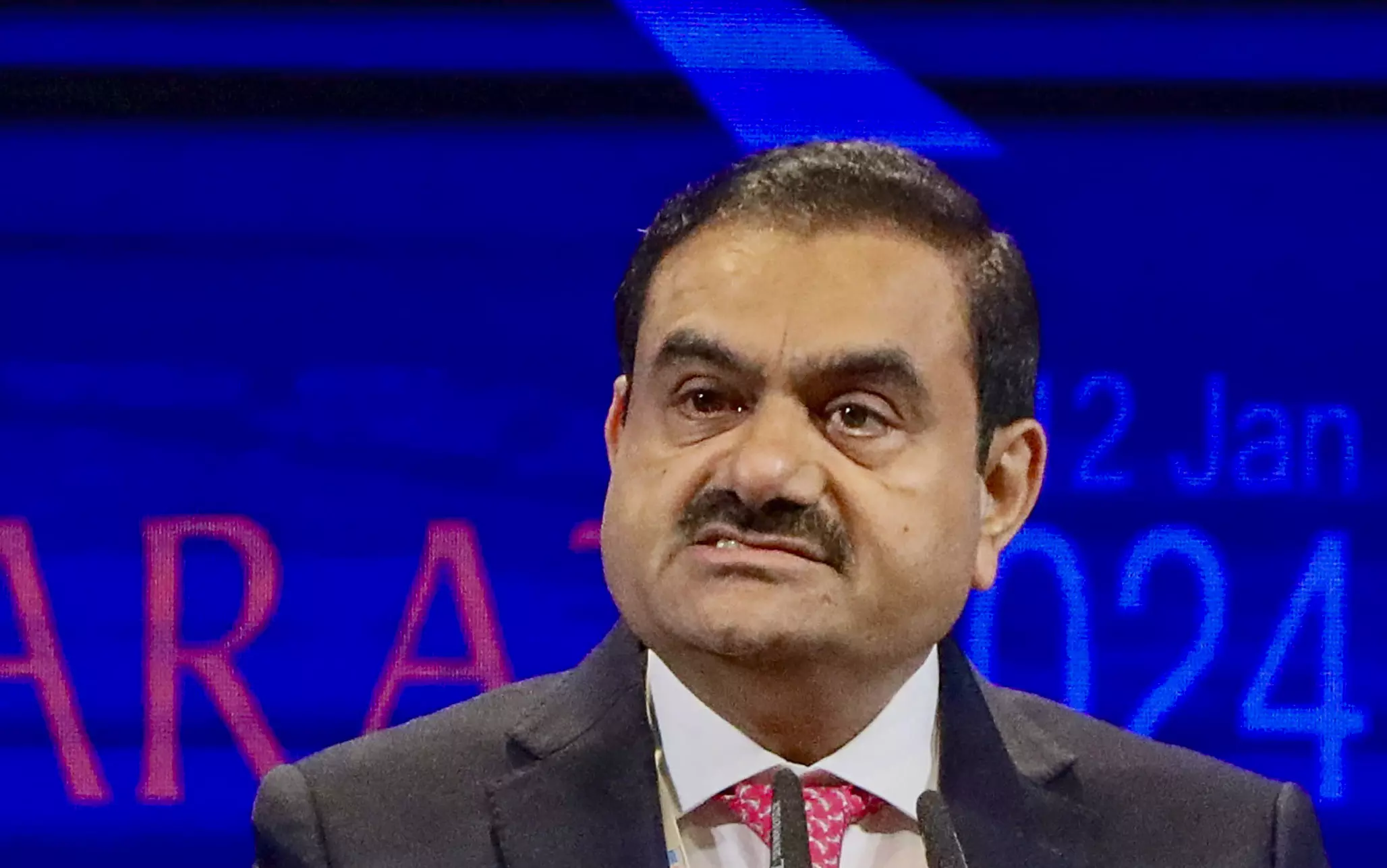
Can Adani get extradited to US? What experts say
“US Attorney Breon Peace has the right to get arrest warrants issued against Adani and seven others indicted and serve them on the nations where they reside,” said Indian-American attorney Ravi Batra

With the US filing civil and criminal charges against billionaire Gautam Adani and seven others over a multi-million-dollar bribery scheme, a prominent attorney in New York has said that the case could escalate significantly, potentially leading to arrest warrants and even extradition attempts.
Adani, India's second-richest man, and seven others, including his nephew Sagar Adani, have been charged by the US Department of Justice with paying bribes to unidentified officials of state governments in Andhra Pradesh and Odisha to buy expensive solar power, potentially earning more than USD 2 billion in profit over 20 years.
Adani Group, however, denied the charges saying the allegations by US prosecutors are "baseless" and the conglomerate is "compliant with all laws".
Also read: US indictment against Gautam Adani could spark international probes, investor exodus
Right to issue warrants
“US Attorney Breon Peace has the right to get arrest warrants issued against Adani and seven others indicted and serve them on the nations where they reside,” Indian-American attorney Ravi Batra told PTI on Thursday.
He further said, “If that nation, as India does, has an extradition treaty then according to the bilateral contract between sovereign nations, the resident nation must turn over the person extradited by the United States. There is a process that the resident nation must comply with, consistent with its laws.”
Batra noted that ultimately, extradition occurs “absent the rarest of circumstances”, as in the case of former Chilean president Augusto Pinochet. The United Kingdom did not extradite him solely on humanitarian grounds. "It’s hard to see the Pinochet precedent apply to this case involving Adani and seven others," he said.
The India-US Extradition Treaty was signed in 1997.
Criminal indictment
Peace, the US Attorney for the Eastern District of New York, has announced a five-count criminal indictment against 62-year-old Adani, his nephew Sagar, an executive director at the conglomerate's renewable energy arm Adani Green Energy Ltd, and its former CEO Vneet S Jaain.
The indictment charged them with conspiracies to commit securities and wire fraud and substantive securities fraud for their roles in a multi-billion-dollar scheme to obtain funds from US investors and global financial institutions based on false and misleading statements.
The indictment also charged Ranjit Gupta and Rupesh Agarwal, a former CEO and former chief strategy and commercial officer of Azure Power Global, respectively, and Cyril Cabanes, Saurabh Agarwal and Deepak Malhotra, former employees of a Canadian institutional investor, with conspiracy to violate the Foreign Corrupt Practices Act (FCPA).
Also read: ‘Modi govt protecting him’: Rahul seeks Adani’s arrest, probe against SEBI chief
Long arms of law
In a statement on Wednesday, Peace said the defendants orchestrated an “elaborate scheme” to bribe Indian government officials to secure contracts worth billions of dollars and Adani, Sagar and Jaain “lied about the bribery scheme as they sought to raise capital from US and international investors”.
Batra said the US law “develops very long arms when our capital markets are involved...While the eight-charged defendants have constitutional presumptive innocence that evaporates if an honest and thoughtful defence, if one exists, is not proffered skillfully".
According to the US Justice Department, the Foreign Corrupt Practices Act (FCPA) prohibits paying foreign officials to influence actions, induce unlawful omissions, or secure improper advantages.
The US Securities and Exchange Commission (SEC) has also charged Gautam and Sagar Adani and Azure Power executive Cabanes with "violating the anti-fraud provisions of the federal securities laws".
(With agency inputs)

